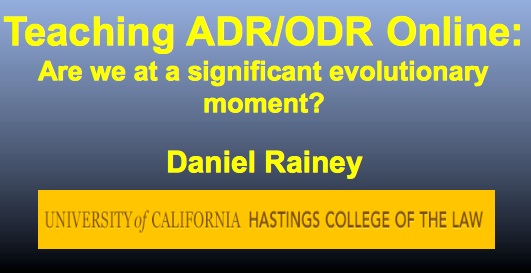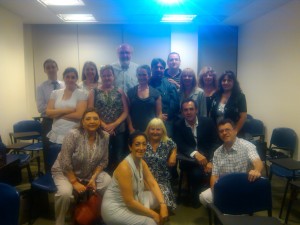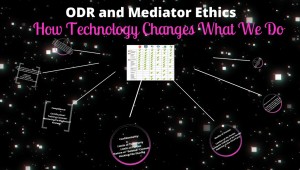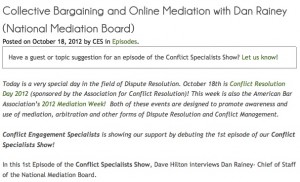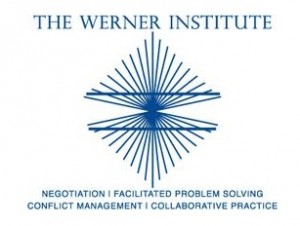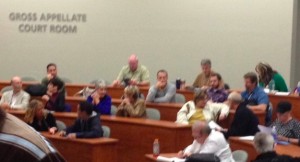Regulating ADR?
I don’t know if this is a momentary blip or the emergence of a new discussion that extends the ongoing debate about credentialing and accreditation. In the most recent issue of the ABA’s Dispute Resolution Magazine there are “point-counterpoint” articles about possible regulation of ADR (basically, mediation). This is regulation, not accreditation, but some of the arguments are similar in nature.
Of course, since the articles come from the legal world, there is an unstated assumption that ADR really is just a set of dispute resolution modes attached to the court system. But, leaving aside that myopia, there is a remarkable reliance on the language of commerce and the marketplace to justify or refute the need for regulation.
Jean Sternlight, in the pro-regulation article, argues that: “While many of us are attracted to the free-spirit or even libertarian idea that disputants should design processes that best suit their needs, others fear that unregulated dispute resolution processes may lead to unjust results.” Imagine having a say in how one handles conflict. That’s radical and may well lead to a “race to the bottom.” Now, I think there is some merit in the notion that in ongoing ADR systems there may be a tendency for providers to “cater to powerful repeat players,” but whether that justifies lumping all ADR into the court world and regulating the providers and the process is, to me, questionable.
Even the defenders of the open system that we currently have use economics and the open market as a basis for rejecting regulation. Bryan and Weinstein assert that: “Creative dispute resolution tailored to the case at hand ultimately saves company time and resources, thereby maximizing shareholder profits.” Bodies that have looked at the issue of accreditation, even within the ABA, have consistently suggested that rules and frameworks, let alone regulation by the government or the ABA, would have a chilling effect on the creative development of ADR modes. Are we getting to the point in the maturing of the field, if it is that, where the mainstream desire will be for stability, predictability, and accountability instead of creativity? Probably not yet, but it could be that we are hearing the first round of a debate that will go on within the ABA, and that ultimately could affect all those ADR providers who are not lawyers and who are practicing in ways not connected to the traditional justice system.
It’s a complex topic, too big for a blog entry. I suggest you read the pro and con articles in the DRM and consider joining the discussion.



